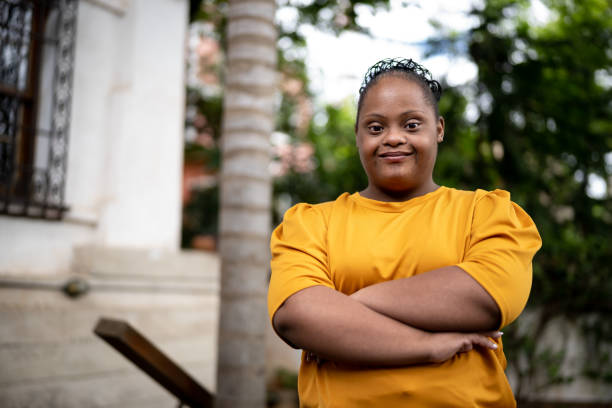Staying informed and proactive is key. Just as a smoker isn't guaranteed to develop lung cancer, not every person with Down syndrome will face certain health issues. Many live their lives without encountering these additional health complications.
However, Michelle Sie Whitten, the chief executive officer and co-founder of Global Down Syndrome Foundation in Denver emphasizes the importance of knowing what potential health challenges you might face to help you catch and address any issues that may pop up along the way. This proactive stance isn't just a checklist; it's a recipe for a healthy and fulfilling life.
The good news is, that the life span of those with Down syndrome which was once just 20 years has expanded to 60 years, according to Dr. Kishore Vellody, the medical director at the Down Syndrome Center at Children’s Hospital of Pittsburgh of UPMC. That's a game-changer, considering the overall life expectancy for Americans is 76.1 years.
Now, let's talk about seven health issues you should keep on your radar:
1. Heart Defects
Heart defects are the number one complication for those living with Down syndrome. Nearly half of those with Down syndrome may be born with heart defects.
It could be a minor hiccup or a more serious matter, but don't worry, doctors screen every baby born with Down syndrome using an ultrasound test called an echocardiogram.
2. Alzheimer's Disease
The extra genetic material can that people with Down syndrome are born with can alter brain cell function, putting individuals at an increased risk of developing Alzheimer's disease.
About half of people with Down syndrome develop dementia as they age. Those with Down syndrome usually develop dementia in their fifties and sixties and develop complications beyond memory loss, such as personality changes, decreased interest in usual activities and more aggression or anxiety.
Recognizing signs early on is key for intervention.
3. Thyroid Issues
The butterfly-shaped gland in the neck, aka the thyroid, might play tricks. Hypothyroidism, which affects up to seven percent of children and between 39 and 61 percent of adults with Down syndrome is common, but the good news is it's easily detectable and treatable through regular screening. You should be screened at least once every two years.
4. Leukemia
A study from 2021 shows that 2.8 percent of those born with Down syndrome were later diagnosed with leukemia, compared to just 0.05 percent of children without Down syndrome.
Although there is a slightly elevated risk, early detection and treatment make a world of difference. People with Down syndrome who develop and are treated for acute leukemia do at least as well as others treated for the cancer, according to another study.
5. Sleep Apnea
Sleep Apnea affects cognitive abilities, growth, and heart function and affects as many as 3 in 4 children with Down syndrome. Early intervention through sleep studies and lifestyle changes is key. It's recommended that children participate in a sleep study before the age of four.
As children age the risk of sleep apnea continues. Obese adults are also at a higher risk. The good news is it can be treated either through surgery or lifestyle changes, such as weight loss. If you are gasping for air while sleeping or feeling excessively tired throughout the day, discuss getting tested with a sleep physician.
6. Vision Issues
Regular eye exams are a must, as 60 to 80 percent of people living with Down syndrome may develop eye disease such as tear duct problems or early-age cataracts. Glasses or bifocals may help if you have trouble adjusting your focus from near to far.
Children with Down syndrome should have an eye exam within their first six months and then every year or two after that (as should adults).
7. Hearing Issues
Hearing issues are a risk for both children and adults, but yearly check-ups keep everything in tune. Children with Down syndrome have a higher risk of hearing loss due to ear diseases or excess ear wax caused by the structure of the ear.
Being able to hear is a critical component of a child's language skills and social skills as they age. Not being able to hear properly can make it harder for children with Down syndrome to learn.









